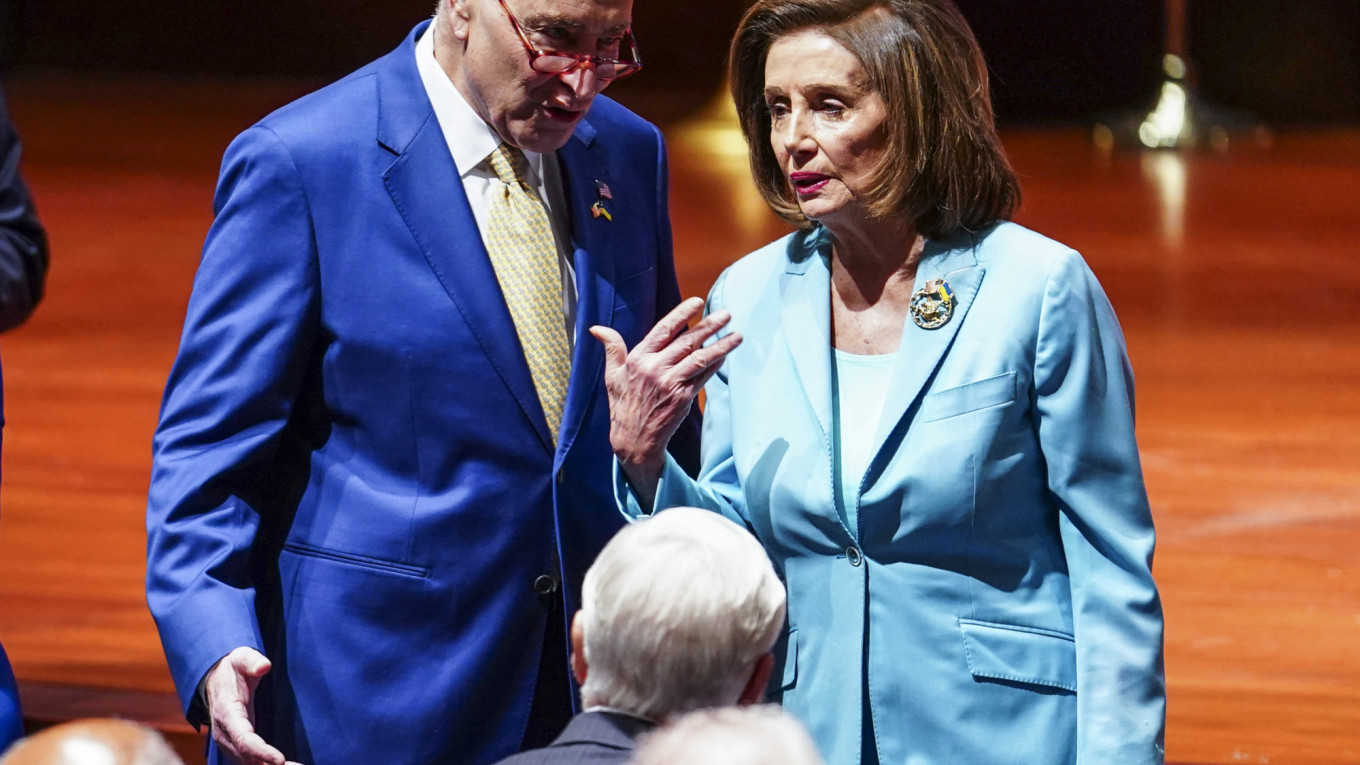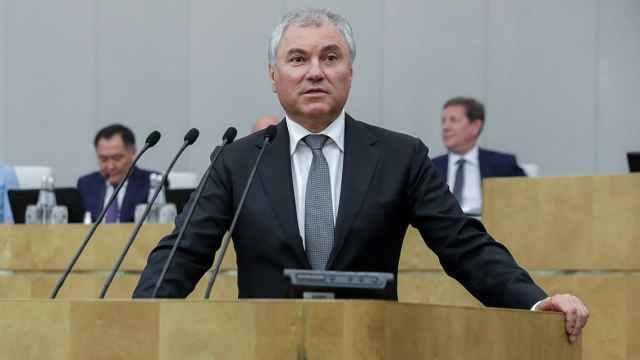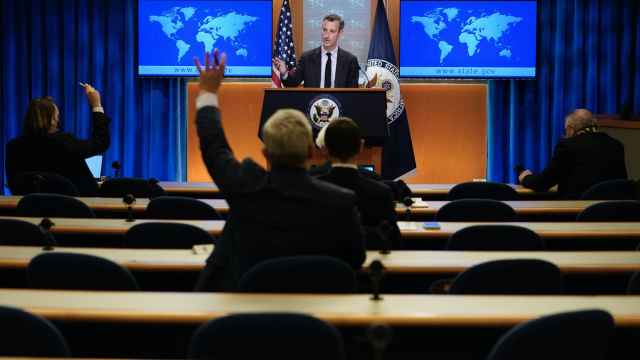The U.S. Congress voted Thursday to end normal trade relations with Moscow and codify the ban on Russian oil, as the White House ratchets up pressure on President Vladimir Putin over his invasion of Ukraine.
The legislation — which also applies to Russia's ally Belarus — enables President Joe Biden to inflict steep tariff hikes on imports from both countries.
Biden announced the steps in a speech last month arguing that Russia must "pay the price" for the bloodshed in its ex-Soviet neighbor, where it has denied accusations of committing atrocities.
"Putin must absolutely be held accountable for the detestable, despicable war crimes he is committing against Ukraine: the images we have seen coming out of that country... are just pure evil," said Senate Majority Leader Chuck Schumer.
"It reminds us of the worst moments in human history, caused by the evil man, Putin: hundreds of civilians murdered in cold blood."
A key principle of the World Trade Organization, the so-called most favored nation status known in the United States as permanent normal trade relations (PNTR), requires countries to guarantee one another equal tariff and regulatory treatment.
The latest trade sanction, which passed the House with support from every Democrat and just a handful of Republicans voting no, caps several rounds of measures intended primarily to sever Moscow's economic and financial ties with the rest of the world.
They have included banning Russian oil imports — a measure Biden already implemented by executive decree — seizing the assets of billionaires tied to Putin, and freezing the nation's stockpile of cash.
Unwavering support
House Speaker Nancy Pelosi hailed the latest action as a sign that the United States was "unwavering" in its commitment to support Ukraine and hold Russia to account.
"Putin's aggression and barbaric war crimes have horrified the world and demand a strong response," she said in a statement.
Together, the moves have already pushed Moscow to the brink of a debt default.
They have also caused prices for key commodities like gasoline and wheat to soar, harming U.S. consumers already facing the highest inflation in four decades.
The United States imported just under $30 billion in goods from Russia last year, including $17.5 billion in crude oil.
The legislation includes a measure to reauthorize Magnitsky Act sanctions that target human rights violations and corruption with visa bans, asset freezes and other penalties.
The United States moved Wednesday to block foreign investment in Russia and state-owned enterprises and levied further sanctions on the country's banks and senior officials.
Secretary of State Antony Blinken told NBC News that global punishments had put the Russian economy into a "deep recession."
"And what we're seeing is a likely contraction of the Russian economy by about 15%," he said.
"That is dramatic... We've seen an exodus from Russia of virtually every major company in the world. And Putin, in the space of a matter of weeks, has basically shut down Russia to the world."
A Message from The Moscow Times:
Dear readers,
We are facing unprecedented challenges. Russia's Prosecutor General's Office has designated The Moscow Times as an "undesirable" organization, criminalizing our work and putting our staff at risk of prosecution. This follows our earlier unjust labeling as a "foreign agent."
These actions are direct attempts to silence independent journalism in Russia. The authorities claim our work "discredits the decisions of the Russian leadership." We see things differently: we strive to provide accurate, unbiased reporting on Russia.
We, the journalists of The Moscow Times, refuse to be silenced. But to continue our work, we need your help.
Your support, no matter how small, makes a world of difference. If you can, please support us monthly starting from just $2. It's quick to set up, and every contribution makes a significant impact.
By supporting The Moscow Times, you're defending open, independent journalism in the face of repression. Thank you for standing with us.
Remind me later.






